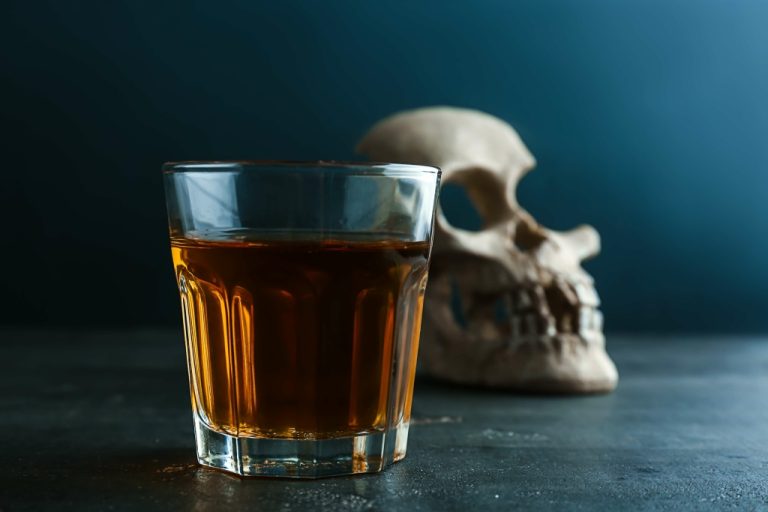Others in the precontemplation stage may feel hopeless and helpless about their situation or overwhelmed by the energy required to make a change. You’ll soon start receiving the latest Mayo Clinic health information you requested in your inbox. Visit the following websites to learn about The Recovery Village’s network of rehabilitation facilities. Each center is ready to help people learn how to cope with their Ambien addiction and uncover the root causes for their substance use disorder.
Why Should We Be Concerned About AUD and Alcohol Addiction?
The severity of the AUD depends on how many of the symptoms they have. A hit on six or more questions can be considered a severe case of AUD. Outpatient treatment is less intensive than inpatient treatment or partial hospitalization programs. They are best for people who have a high motivation to recover but cannot leave their responsibilities at home, work, or school.
Patient-Derived tumor Xenograft (PDX) mouse model
Or you finally accept the reality of your drinking and reach out for the help that you need. Regardless of when you notice you have a drinking problem—whether in the early stages or during full-blown alcoholism—you can start your recovery. While you were once able to convince https://mikszona.ru/muzyka/rokhard-rok/28428-lust-and-love-rock-hard-revue-2017.html others—and yourself—that your drinking wasn’t a problem, you can’t deny it anymore. When you reach the stage of chronic alcoholism, drinking starts to cause significant problems in your life. Relationships suffer, work problems arise, and you could even get into legal trouble.

Study design, ethical considerations, and outcomes
If you feel that you sometimes drink too much alcohol, or your drinking is causing problems, or if your family is concerned about your drinking, talk with your health care provider. Other ways to get help include talking with a mental health professional or seeking help from a support group such as Alcoholics Anonymous or a similar type of self-help group. We publish material that is researched, cited, edited and reviewed by licensed medical professionals. The information we provide is not intended to be a substitute for professional medical advice, diagnosis or treatment. It should not be used in place of the advice of your physician or other qualified healthcare providers. Late-stage, or end-stage alcoholism, is a full-blown addiction to alcohol, often with damaging physical and mental health effects.
- Healthcare and mental health professionals may describe this stage as moderate AUD.
- They may also benefit from behavioral therapy, such as cognitive behavioral therapy (CBT) and motivational interviewing (MI), to help them change their attitudes and behaviors related to alcohol use.
- The changes can endure long after a person stops consuming alcohol, and can contribute to relapse in drinking.
When combined with other evidence-based therapies, such as cognitive behavioral therapy (CBT), MAT can help prevent relapse and increase your chance of recovery. From there, you will work on maintenance (learning to live sober) and, finally, transcendence or full recovery. The individual can stay in this stage for many years but eventually start showing more disordered behaviors. Data collection and analysis were performed by Tatsunori Hanai, Kayoko Nishimura, Shinji Unome, Takao Miwa, Yuki Nakahata, Kenji Imai, Atsushi Suetsugu, and Koji Takai.
Early Symptoms
People often need to address past trauma or familial issues during this time. Some people may feel so “broken” that they almost feel they can no longer experience joy and confidence, or have healthy relationships again. Since withdrawal symptoms tend to ebb and flow, you may be tempted to feel http://musrok.ru/load/metal/sober_truth_f_r_e_a_k_2011_hd_720p/2-1-0-49946 like you’re not making progress ― even though in reality, you’ve come a long way. When this program is complete, people need a rehabilitation program. Some are offered on an inpatient basis (allowing you to move out of your home to get care), and others are available for outpatient treatment.

This is because they only feel the negative effects of alcohol when they stop drinking. In early-stage alcoholism, the person maintains and may increase their alcohol use. When a person with alcoholism reaches end stage alcoholism, they have reached a point that is dramatically different from the initial stages. During the early stages of the disease, the person may drink heavily and may experience hangovers in between drinking episodes. However, during the end stage, the addiction has taken over, and the person may no longer be able to control their drinking impulses.
Stages of Alcoholism: Early, Chronic, and End Stage
Because he is a member of a support group that stresses the importance of anonymity at the public level, he does not use his photograph or his real name on this website. In order to be diagnosed with AUD, a person must experience http://www.thecoalminetour.com/WatchHistory/watches-for-the-first-time any two of these symptoms within the same 12-month period. Other early signs of alcoholism include blackout drinking or a drastic change in demeanor while drinking, such as consistently becoming angry or violent.
The effects of alcoholism, however, are not exclusive to the addict. Pregnant women who abuse alcohol risk having babies with birth defects or fetal alcohol syndrome, and everyone is at risk when an alcoholic experiences an alcohol blackout or gets behind the wheel of a car. The center is conveniently located in Houston, Texas, and is led by experienced master’s level counselors and medical professionals who specialize in personalized treatment for drug and alcohol abuse. The late stage of alcoholism represents a severe and advanced form of alcohol use disorder. At this stage, individuals experience significant physical, mental, and social deterioration due to their prolonged and intense use of alcohol, with an obvious impact on family relationships and work life. In the beginning stages of alcoholism, drinking escalates and the individual develops an increased tolerance for alcohol.